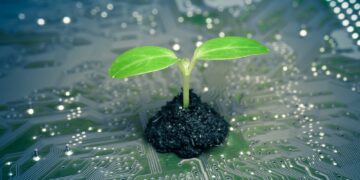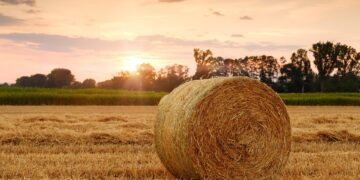[ad_1]
Harvesting Success: The Future of Water-Efficient Farming
In a world where water scarcity is becoming a growing concern, the future of agriculture lies in water-efficient farming practices. As the global population continues to rise, the demand for food is increasing, putting pressure on farmers to produce more with less water. Fortunately, advancements in technology and innovative farming methods are paving the way for a more sustainable and efficient agricultural industry.
The Importance of Water-Efficient Farming
Water is a precious resource that is essential for the growth of crops. However, with water scarcity becoming an increasingly pressing issue, farmers must find ways to reduce their water usage while still maintaining high yields. Water-efficient farming practices not only help to conserve water but also improve soil health, reduce erosion, and increase crop resilience to droughts and other environmental stressors.
Advancements in Water-Efficient Farming
One of the key advancements in water-efficient farming is the use of precision irrigation systems. These systems utilize sensors and automation technology to deliver the right amount of water to crops at the right time, reducing water wastage and improving crop yields. Additionally, drip irrigation systems and soil moisture sensors can help farmers to optimize their water usage and minimize water runoff.
Smart Farming Technologies
The future of water-efficient farming lies in smart farming technologies that utilize data analytics and artificial intelligence to optimize water usage. These technologies can monitor soil moisture levels, weather patterns, and crop health in real-time, allowing farmers to make informed decisions about when and how much water to apply to their crops. By using these technologies, farmers can significantly reduce water wastage and increase the efficiency of their irrigation systems.
Regenerative Agriculture Practices
Another important aspect of water-efficient farming is the adoption of regenerative agriculture practices. These practices focus on building healthy soil ecosystems that can retain water more effectively and improve crop resilience. By using cover crops, crop rotations, and no-till farming techniques, farmers can improve soil structure, reduce erosion, and increase water infiltration rates.
Challenges and Solutions
Despite the numerous benefits of water-efficient farming, there are still challenges that farmers must overcome. One of the main challenges is the initial cost of implementing water-efficient technologies and practices. However, there are various government incentives and grant programs available to help offset these costs and encourage farmers to adopt more sustainable practices.
Conclusion
In conclusion, the future of agriculture lies in water-efficient farming practices that prioritize sustainability and resource conservation. By utilizing precision irrigation systems, smart farming technologies, and regenerative agriculture practices, farmers can reduce water wastage, improve crop yields, and ensure a more sustainable future for generations to come. As the global population continues to grow, it is essential that we prioritize water-efficient farming to ensure food security and environmental sustainability.
[ad_2]












